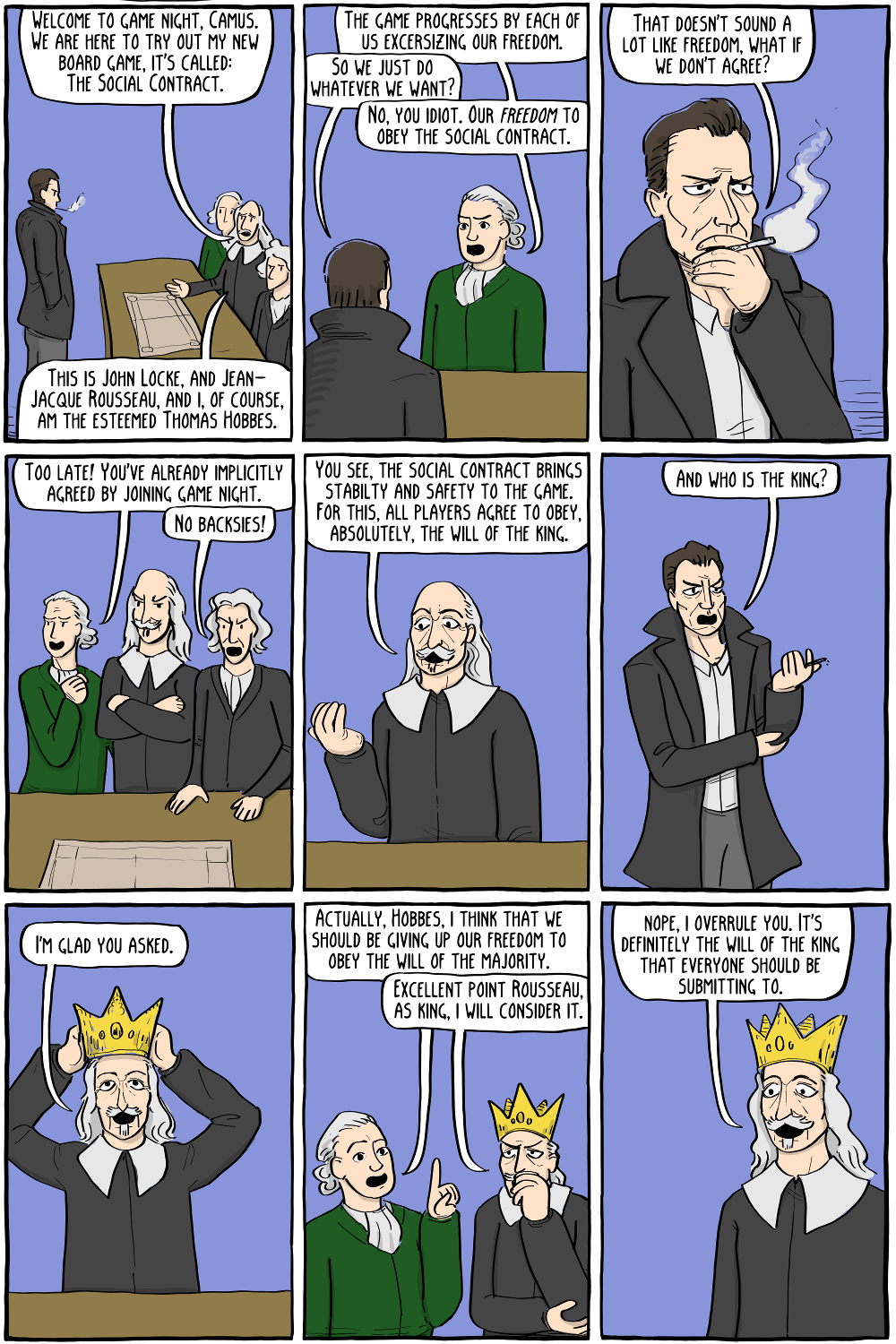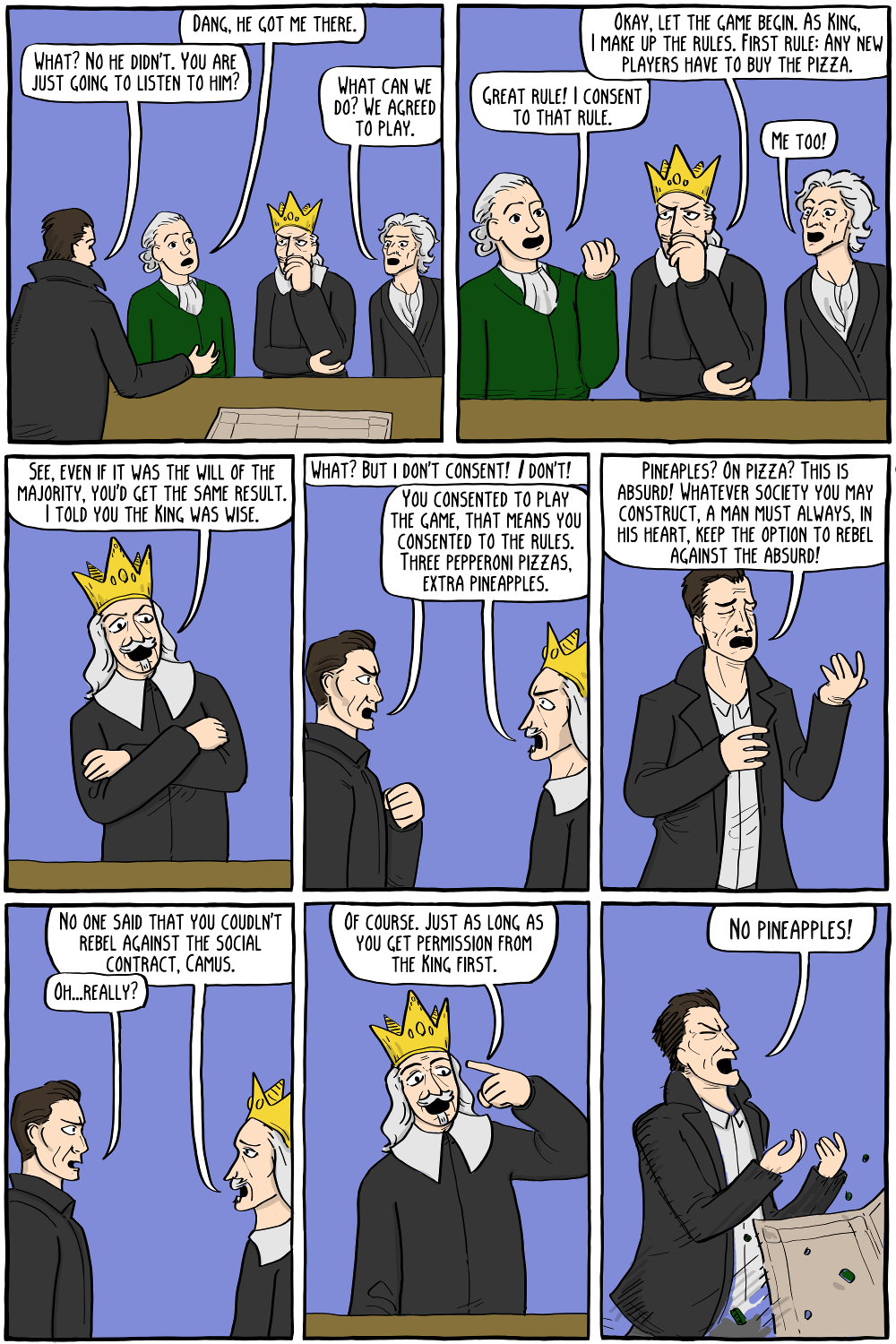Class n. 2: Why should we be governed? Social contract and the problem of state legitimacy from Hobbes until today.
Basic outline:
Where does (state) authority come from and what makes it legitimate? Is the question of authority a settled one or is it - on the contrary - a very controversial one with contentious answers that keep developing (based on "social contract" that is constantly being re-negotiated)? How are people like Hobbes and Locke relevant even today?
The basic question of the class can be summed up nicely by a comic:


Recomended reading:
One very useful source that can provide you with a fairly nutritious amount of information is the (online) Stanford encyclopedia of philosophy, specifically its entry on political legitimacy.
If you'd like to broaden you perspective and you are a fan of the Songs of Ice and Fire (or - as you may know it - the Game of Thrones), consider the question of authority there (but like the books themselves it is not short, though there are not that many names in this text):
Finally, this is a pdf with the lecture outline:
Basic questions:
- What is the difference between descriptive and normative conceptions of legitimacy?
- Is there a generally accepted (universal) normative conception of legitimacy?
- How is the theory of social contract reflected in modern constitutional states?
- Has the (and if so how approximatelly?) content of the social contract in Czech republic (or another state you choose to think about) changed in the last decades in your opinion? And how will it change in 50 years?